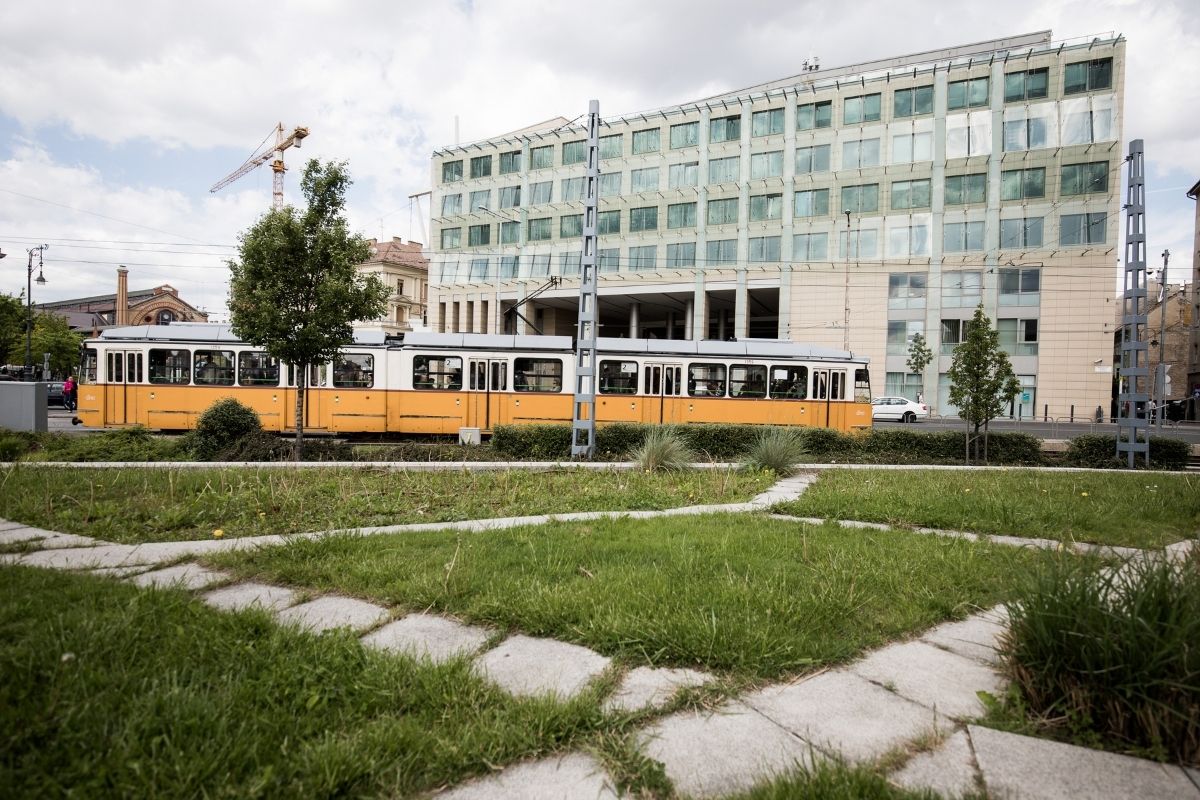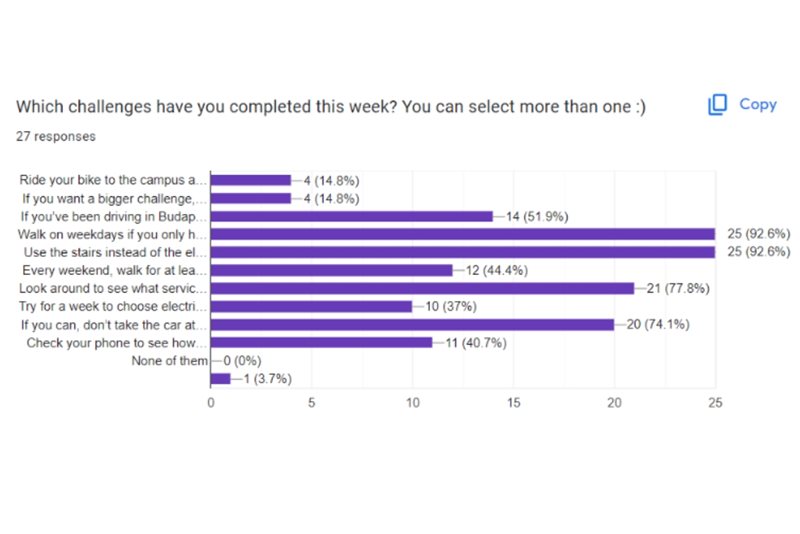How to make sustainable urban transport more popular in Budapest

“Everyday actions can make a real difference if taken and improved in the longer term” – this could be the closing sentence of our September theme on sustainable urban transport. Individual actions and challenges can only have an impact if we do not stop at the first step and build on the initial success to set new goals.
As well as moving forward, it is important to reflect and evaluate the progress made and then use this reflection as a basis for further action. We are also interested in understanding how the challenges were experienced by Corvinus citizens, so thank you for filling in this short questionnaire about the challenges in September.
We asked students about the topic in several courses throughout the month. Among international and Hungarian students of …, for example, the challenges “Walk on weekdays even if you only have to make 1-2 stops” and “Use stairs instead of elevators in university buildings” were the most popular, and many of them were already used independently of the campaign. The majority of students on the course did not use cars at all, but many also looked around their neighbourhoods to see what services were available to them closer to home rather than traveling further.

Proven and tested practices should be continued in the future and new challenges should be developed for the next step. It can also increase the impact of the action if, after trying it individually, we open up to our community, for example by getting our friends, family and colleagues to follow us. This evolved into community action, can be the key to realizing the positive vision we imagined in our opening article.
We also need systemic change
Community action will only be successful if the infrastructure is also adaptive. Budapest is offering more and more opportunities for sustainable transport, such as the extensive public transport network, the ever-expanding cycling network and the local bicycle-sharing system, the MOL Bubi. These also make it easier to get to university, as we described in an earlier article.
Bubi was launched on 8 September 2014, so it celebrated its 10th birthday earlier this month. After years of initial success, the system’s popularity declined, halted by the launch of Bubi 2.0 on 20 May 2021. Since then, the use of the system has increased year over year: 227 thousand rentals in August 2021, 358 thousand in August 2022, 387 thousand in August 2023 and 399 thousand in August this year.
The most popular station of Bubi 2.0 is located on Jászai Mari tér, but the top 5 also includes Fővám tér. The use of Bubi is influenced by the events that shape the life of the city.
- After Uber’s exit from Budapest in 2016, there was a decrease in usage among pass users and an increase in rentals among ticket users.
- The Covid19 pandemic gave a brief boost to Bubi usage, but this increase disappeared once the pandemic had passed.
- The elimination of the fuel price cap in December 2022 led to a small increase in Bubi usage of 2–6%.
- The renovation of tram lines boosts the use of the surrounding Bubi stations.
The main benefit of using the Bubi is the physical exercise, followed by the fast journey and then the fun and pleasant travel experience it provides.
A number of people in Budapest regularly combine Bubi with public transport or car, contributing to a more sustainable and greener city, according to an article written by our colleague, Zombor Berezvai.
And if all this hasn’t convinced you to cycle or take a Bubi to university, a recent episode from the Bringás Brigantik vlog also looked at why you should choose Bubi.
Parking spaces can also be reduced
The spread of more sustainable transport can have an impact not only on air quality, but also on the number of parking spaces needed, which can be given back to the pedestrian or even to nature.
The renovation of the Gellért Campus has reduced the area of parking spaces by 57%, which was a key aspect of the development, along with increasing the amount of green space. This design aspect also reduced the total area of on-campus parking at Corvinus by almost 30 percent.
Instead of 2,380 square metres, the parking spaces on the Gellért Campus now occupy 1,024 square metres, with space for electric car charging and a dedicated carpooling area. This was also a requirement of the LEED system, which awarded the building a Gold sustainability certification.
In the Corvinus Green project, we will continue to focus on promoting and enhancing sustainable urban transport near and beyond the university. All ideas and suggestions are welcomed in the future as well.
In May 2024, we relaunched the Sustainability Topic of the Month project, which aims to present an interesting and relevant topic at Corvinus every month. In September, we chose sustainable urban transport as our theme, and we will announce the October theme in the coming days.
Authors: Zombor Berezvai, Máté Kovács